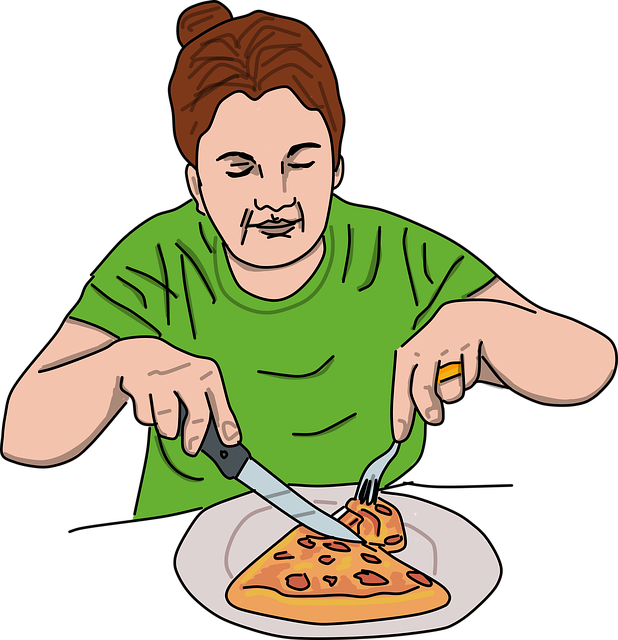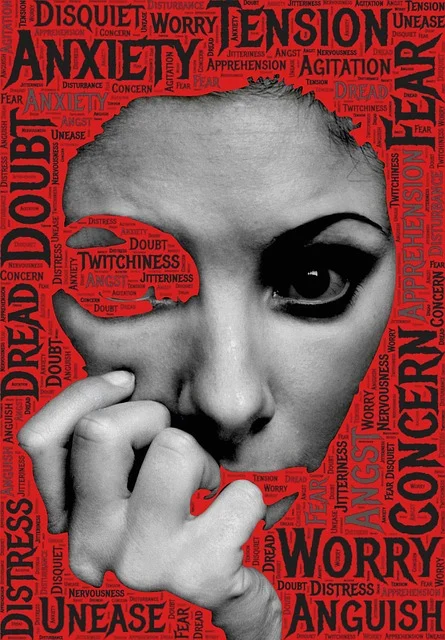The behavioral disorder known as binge eating disorder (BED) is typified by obsessive, repetitive consuming. Overeating on occasion is natural, but having an eating problem is a daily struggle. It seems to be in charge of you and to be interfering with your physical, mental, and emotional health. The term “binge eating” refers to eating a lot of food quickly and feeling unable to stop.
What is binge eating disorder?
An important condition is binge-eating disorder. It’s always accompanied by an inability to quit eating. It also frequently entails consuming far more food than is customary.

Most people overindulge occasionally, such when they eat seconds or thirds of a festive meal. However, experiencing compulsive eating on a daily basis and consuming unusually large amounts of food could be signs of binge-eating disorder.
Binge eaters frequently experience feelings of embarrassment or humiliation following their eating episodes. As a result, people with the illness frequently experience phases when they attempt to drastically reduce or restrict their eating. However, this can instead heighten appetite cravings and result in a never-ending cycle of binge eating. Binge eating disorder treatment can be beneficial.
Signs and symptoms
These are the signs and symptoms of binge eating disorder
- Eating until one becomes uncomfortable and beyond satisfied.
- Eating too quickly to register the quantity or sensation of what you’re consuming.
- Consuming a lot of food after a recent meal or when you’re not hungry.
- Emotional eating is the act of eating in reaction to emotional stress.
- Avoiding communal dining and eating in private and alone.
- Arranging your timetable to accommodate periods of binge eating.
- Storing food in secret locations and hoarding it for later use.
- Hiding you’re eating habits from other people out of embarrassment about how much you’re consuming.
- Obsessive thoughts and cravings related to food.
- Frequent dieting, which could result in weight loss or swings in weight.
Anxiety, regret, embarrassment, and low self-esteem associated with binge eating.

Signs and symptoms of binge eating can occasionally be seen in many persons. You might have a condition if they start to repeat frequently (once a week or more). Relationships and stress are two environmental factors that might have an impact on your behavior and mental health. These ailments could work in concert with other factors to drive you to cross the boundary from sporadic disordered behavior to fulfilling BED criteria.
Causes
These are the causes of binge eating disorder
Genetics
A higher sensitivity to dopamine, the brain chemical that produces sensations of pleasure and reward, may be present in BED patients. Strong evidence also points to the disorder’s hereditary nature (1, 4Trusted Source, 5Trusted Source, 6Trusted Source).
Gender
Women are more likely than males to have BED. 3.6% of American women and 2.0% of American males have BED at some point in their life. Underlying biological elements might be the cause of this.
Alterations in the brain.
There are signs that brain structural abnormalities in BED patients could lead to an increased sensitivity to eating and a decrease in self-control.
Dimensions of the body.
About half of those who suffer from BED are obese, and 25 to 50 percent of patients undergoing weight-loss surgery also fit the BED criteria. The disorder may be caused by or result from weight issues.

Psychological trauma.
Risk factors include stressful life events like abuse, death, family member separation, or auto accidents. Bulimia-related childhood bullying may also be a factor.
Further mental health issues.
Bipolar illness, anxiety, despair, PTSD, phobias, and substance addiction are among the psychological disorders that over 80% of individuals with BED have at least one of.
Binge eating disorder test
Although there won’t be a test, the questions you must respond to may resemble a quiz. Your physician will evaluate your responses in light of the DSM-5’s diagnostic criteria. They could also inquire about additional topics not covered in the handbook. They will diagnose binge eating disorder if they believe you fit the diagnostic criteria.
DSM 5 Diagnostic criteria
Frequent episodes of eating excessively. Binge eating episodes are distinguished by the presence of both of the following:
- Consuming a quantity of food in a short amount of time (like two hours) that is unquestionably more than what most individuals would consume in a comparable amount of time under comparable conditions
- a feeling that one cannot stop eating or control what or how much they are eating during the episode, or a lack of control over their eating
- Three or more of the following are linked to the bouts of binge eating:
- eating a lot faster than usual
- consuming food until it makes you uncomfortable
- consuming a lot of food even when one is not physically hungry
- eating by oneself when one feels ashamed of how much they are eating
- feeling terribly guilty, dejected, or dissatisfied with oneself after
- There is noticeable concern about overindulging in food.
- For three months, the binge eating happens at least once a week on average.
- Binge eating does not only happen in those who have avoidant/restrictive food intake problem, bulimia nervosa, or anorexia nervosa; it is also not linked to the frequent use of incorrect compensatory behavior (such as purging).
- It is crucial to understand that the diagnostic criteria for binge eating disorder do not include factors like looks or weight.
Diagnosis
A mental health evaluation may be recommended by your healthcare provider in order to diagnose binge-eating disorder. This involves discussing your emotions and eating patterns with a mental health specialist. Seek a mental health specialist who specializes in treating eating disorders.
Your doctor could also recommend additional testing to look for health issues that could be brought on by binge-eating disorder. High blood pressure, high cholesterol, heart issues, diabetes, GERD, inadequate nutrition, electrolyte imbalances, and certain respiratory ailments associated to sleep are a few of them. Tests could consist of:
- A medical examination. We may weigh you as part of the assessment if you consent.
- Tests on the blood and urine.
- A consultation with a sleep disorder expert.

Treatment
These are the following treatment for binge eating disorder
Psychotherapies
These are the following therapies for binge eating disorder
Cognitive behaviour therapy
The analysis of the connections between unfavorable ideas, attitudes, and actions about food, body image, and weight is the main goal of cognitive behavioral therapy (CBT) for borderline eating disorder (BED).
People can be assisted in changing their negative feelings and patterns by developing methods when the underlying causes have been found.
Setting objectives, self-monitoring, establishing consistent eating schedules, altering beliefs about oneself and weight, and promoting healthy weight-control practices are some examples of specific interventions.
It has been shown that the most successful treatment for BED patients is therapist-led CBT. According to one study, 79% of individuals stopped binge eating after 20 CBT sessions, and 59% of them were still successful a year later.
Interpersonal therapy
The foundation of interpersonal psychotherapy (IPT) is the theory that binge eating is a coping strategy for unresolved personal issues like bereavement, marital discord, major life transitions, or underlying social issues.
Over the course of 12 to 16 weeks, the objective is to pinpoint the precise issue that is connected to the unhealthy eating habit, accept it, and then implement positive adjustments.
Counseling can be provided in a group setting or one-on-one with a licensed professional; it can also occasionally be paired with CBT.

There is compelling evidence that this kind of therapy reduces binge eating behavior in the short- and long-term. There isn’t another therapy that can match CBT’s long-term results
Dialectical behavior therapy (DBT)
According to dialectical behavior therapy (DBT), binge eating is an emotional response to upsetting events for which the individual has no alternative means of coping.
It teaches individuals how to control their emotional reactions in order to deal with difficult circumstances in their daily lives without going on binges.
According to a reliable source (23), the four main components of DBT treatment are emotion regulation, mindfulness, distress tolerance, and interpersonal effectiveness.
In a research with 44 BED women receiving DBT, 89% of them reported no longer binge eating at the conclusion of therapy; however, by the 6-month follow-up, this number had reduced to 56%.
On the other hand, little is known about DBT’s long-term efficacy and how therapy stacks up against CBT and IPT.
Weight loss therapy
By enhancing self-esteem and body image, behavioral weight loss therapy attempts to assist clients in losing weight, which may lessen their tendency to binge eat.
The goal is to monitor food intake and thoughts about food throughout the day, as well as to gradually adopt healthy lifestyle adjustments with relation to diet and exercise. One pound (0.5 kg) of weight loss per week is anticipated.
Weight loss therapy has not been demonstrated to be as successful as CBT or IPT at preventing binge eating, despite the fact that it may assist improve body image, reduce weight, and lower the health risks associated with obesity.
Behavioral weight reduction therapy, like conventional weight loss treatments for obesity, has only been demonstrated to assist patients in achieving temporary, moderate weight loss.
Medications
A medication called lisdexamfetamine dimesylate, often known as Vyvanse, is used to treat attention-deficit/hyperactivity disorder (ADHD). The U.S. Food and Drug Administration has approved this medication as the first treatment for adults only with moderate to severe binge-eating disorder. As a stimulant, this medication has the potential to become habit-forming if used improperly. Serious side effects are possible, but common ones include dry mouth and difficulty sleeping.
Some antidepressants and medications used to treat seizures are examples of additional medication classes that may help lessen the symptoms of binge-eating disorder.
Long term effects
Numerous physical and mental health issues might arise from binge eating disorder that is left untreated. Among them are:
- cardiac conditions
- Type 2 diabetes
- arthritis,
- high blood pressure, high cholesterol,
- social isolation, and loneliness
- anxiety or depression.



